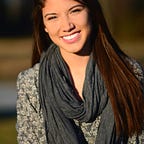Field notes and participant observation in ethnographic studies: a skill summary
While finishing up the research for my ethnographic study it is important to refresh on skills and research techniques that have been discussed previously. Throughout my research I have conducted many research techniques and skills such as managing resources, making research contacts, writing and giving interviews, and planning participant observation. While all of these are significant, I believe that one of the most important skills that I have learned is how to write field notes.
While participant observations are very useful in research, they are meaningless without field notes. Participant observations are used to gain insight into cultural practices and phenomena. Without field notes we are very likely to forget the information and important details presented throughout participant observation. With this being said, there is a particular way in which field notes must be recorded in order to guarantee that they are accurate and worthwhile. Field notes must be useful and reliable while regarding the details of their research. The best way to guarantee this is for ethnographers to write their field notes immediately after their participant observation.
For my first participant observation I made sure that I wrote my field notes immediately after participant observation, even writing jottings throughout my observation. I actually finished my field notes before i had even left the field site. However, I still had some things that I wish I could remember in more detail. One thing that we learned throughout the workshop was how useful current technology can be in field notes. It would have been very useful for me to have taken photos or videos or even just to record audio while performing my participant observation. This helps in that you are able to look back and notice details that you may not have noticed before. This will also allow you to focus more on things that can not be recorded with current technology. For example, in our workshop we were given a 360 photo, audio, and videos to write field notes on. These would all be useful to the ethnographer except for the things that can not be seen or heard. What did it smell like? What was the temperature? What time of day was it? And even background information like where was it and who was it? While technology can be a useful tool for field notes, it can not record everything.
In order to record as much as possible, it is important to include as much information as possible in your field notes. Chiseri-Strater and Sunstein (1997) have developed a list of useful things that should be included in all field notes:
- Date, time, and place of observation
- Specific facts, numbers, details of what happens at the site
- Sensory impressions: sights, sounds, textures, smells, taste
- Personal responses to the fact of recording fieldnotes
- Specific words, phrases, summaries of conversations, and insider language
- Questions about people or behaviors at the site for future investigation
- Page numbers to help keep observations in order
In addition there are four major parts of field notes that should be kept distinct from one another in some way when we are writing them. The four parts include:
- Jottings
- Description of everything that can be remembered
- Analysis
- Reflection
While there are general guidelines to writing field notes, everyone has different ways of including those guidelines. Here are some examples:
- In this example from classmate Marievien Aquino you can see how she incorporates the four parts.
- Classmate Vanessa Ofori shows her use of technology while recording an excerpt as she sat down and jotted field notes.
- User experience professional Carolyn Wong uses field notes to observe and record participant observation at a library.
